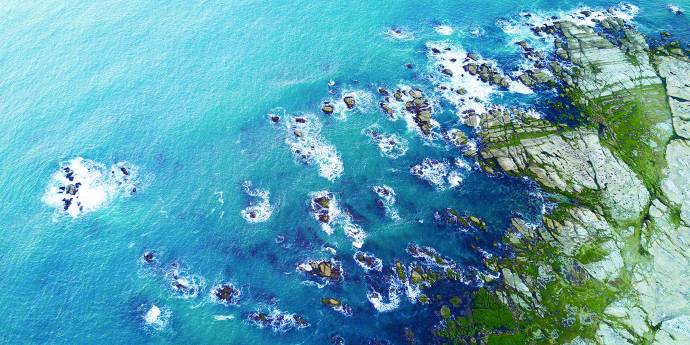Christmas wish granted for Pasifika leaders
Christmas has come early for 17 leaders of Pacific descent who have been selected for the Tautua Mentoring Programme 2025.
Leading public sector governance has been recognised in the Public Service Commission Spirit of Service Awards.

More than a million cubic meters of rock and debris came down onto the road and rail links of the eastern South Island when the Kaikōura earthquake hit in November 2016.
The 7.8 magnitude earthquake devastated Kaikōura’s transport networks. State Highway 1 was closed, as was the rail line, and there was substantial damage to road, rail and harbour infrastructure.
It took a collaboration between multiple agencies - Waka Kotahi NZ Transport Agency, KiwiRail, the North Canterbury Transport Infrastructure Recovery Alliance, Te Rūnanga o Kaikōura and more – to reopen access to the region.
The Moving Mountains Kaikōura infrastructure project that they worked on won the 2020 Leadership in Governance Award in the Public Services Commission Spirit of Service Awards in November. The project also won the overall Prime Minister’s Award, selected from the winners of four award categories.
Spirit of Service judge Gregor Coster DFInstD says the single biggest governance challenge the project faced was to bring together the leadership of different organisations so that the project could proceed in a joined-up way. The project board was praised for bringing public and private sectors partners together successfully, adopting a people-first approach and focussing on results that delivered value for money.
“The winners demonstrated the ability to bring together a governance structure that provided excellence in governance and leadership. They were also able to engage the community and iwi,” Coster says.
“Coordination of key areas such as health and safety, timing and working towards a shared goal – albeit working in different ways – were managed well. In regard to large projects, this is an excellent model. I would encourage any future large projects to take a leaf from this book.”
North Canterbury Transport Infrastructure Recovery Alliance Board Chair Steve Mutton says a three-tiered approach to governance was integral to the success of the Moving Mountains project.
“Very early on in the piece we talked about what success would look like. This provided us with value statements that drove us to think about how we could include multiple stakeholders while working in a crisis at incredible speed,” Mutton says.
Project governance was managed in the three spheres of 1) delivery against goals, 2) stakeholder input and management, and 3) oversight of budgets and the broader goals of the government, who was the funder.
“Winning the awards was amazing, and humbling, recognition for the project - but really for 9,000 people who put their lives on hold for four years to literally move mountains to reconnect communities,” Mutton says.
Also among the three finalists in the governance category was the Peke Waihanga - Artificial Limb Service, which provides amputees and those at risk of deteriorating health and disability conditions with services that help them live independent and productive lives.
Chief Executive Sean Gray says good governance is critical to the success of the organisation, and therefore the improved quality of life among the people it helps.
“In healthcare, the importance of good governance is critical to ensure we make good decisions for individuals’ health and ensure limited resources are used in the best way for our country. The decisions that get made in this area have a direct impact on people’s lives, and there are significant competing priorities,” Gray says.
“If you don’t get that right, it has a flow-on effect to the rest of the organisation that creates an inability to act with confidence and conviction. Good governance has a trickle-down effect that gives the team confidence to make decisions and get on with the job at hand.
Gray says having the right people around the board table “empowers the people we care for”.
The third finalist was a coalition of government organisations that had collectively worked towards achieving 50% representation for women and promoting diversity and inclusion on state sector boards. This included the Ministry for Women, the Treasury, Ministry of Business, Innovation and Employment, Department of the Prime Minister and Cabinet, Department of Conservation, Ministry of Transport, Ministry for Pacific Peoples, Office of Ethnic Communities and the Tertiary Education Commission.
In June 2018 Cabinet set a target of 50% women on state sector boards and committees, to be met by 2021. This was achieved in June 2020.
The article is featured in the December/January 2021 issue of Boardroom magazine